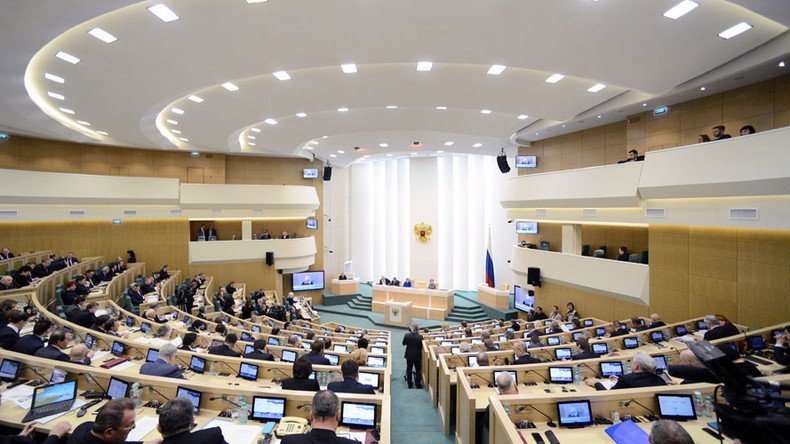Russia in talks with international groups to take over role of PACE

The head of the Federation Council’s International Affairs Committee has told the press that Russia is successfully approaching various international inter-parliamentary groups to compensate the continuing alienation from the PACE.
In an interview with Izvestia daily, Senator Konstantin Kosachev said that he and his colleagues considered the Geneva-based Inter-Parliamentary Union as the most promising group, because it never used sanctions as a means of pressuring minorities and political opponents.
READ MORE: Top lawmaker rules out Russia’s return to PACE in coming session
“The Inter-Parliamentary Union has the best perspective because no group of nations holds a majority in this organization. Also, the United States is not a member and therefore is not trying to subject everyone else to its will,” Kosachev said. “This does not mean that without the US we would be trying to do exactly the same, this simply means that Americans are not obstructing normal work of the assembly and we are satisfied with this,” he noted.
Kosachev also promised that Russia would continue to advocate diversity and multi-polar world instead of making international groups its own tools.
Launched in 1889, the Inter-Parliamentary Union is the oldest existing such group. It unites the members of 170 national parliaments and 11 regional parliamentary assemblies are associate members. The group holds a permanent observer status at the United Nations.
A Russian delegation is expected to take part in the forthcoming session of the Inter-Parliamentary Union that will start in late October. The delegation will be comprised of deputies of the upper and lower houses of the Russian parliament and headed by the upper house speaker, Valentina Matviyenko.
However, the head of the State Duma Committee for International Affairs, Leonid Slutsky, said that he does not see the Inter-Parliamentary Union as a fully-fledged replacement for parliamentary assemblies of the Council of Europe and the Organization for Security and Cooperation in Europe. He also said that the Russian politicians were seeking to boost cooperation in all international inter-parliamentary organizations.
Russia ceased all activities in PACE in 2014, after the assembly passed a major anti-Russian resolution, following a major political crisis in Ukraine. Back then PACE stripped the Russian delegation of its voting rights and banned it from participating in the group’s ruling bodies or monitoring missions until the end of that year. The sanctions were prolonged in 2015 and 2016.
The Russian parliament responded by issuing a resolution stating that nations which have repeatedly violated international law and caused thousands of casualties have no moral right to judge Russia or impose sanctions on it. Russia’s delegation left PACE after the controversy because they considered it impossible to resume discussions while the sanctions were in force.
In late September this year, Slutsky said the door is open for Russia’s gradual return to the PACE once the body stops its policy of “discrimination” against Moscow. He added that the Russian parliament maintained contact with all political groups of PACE and that its representatives would continue to monitor the developments in it.
In earlier comments, Slutsky told reporters that the return to PACE required a decision on the top political level, possibly a sanction from the Russian president.












